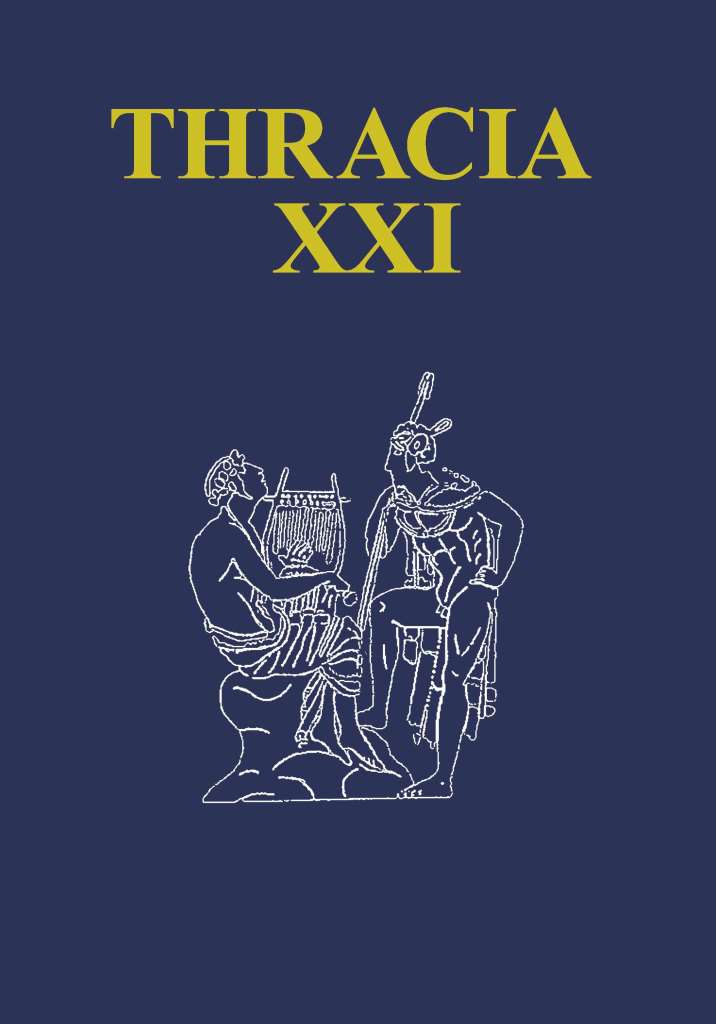РИМСКОТО ЗАВОЕВАНИЕ И НАЧАЛОТО НА РИМСКАТА ВЛАСТ В ТРАКИЙСКИТЕ ЗЕМИ (I): ОКТАВИАН И КАМПАНИИТЕ НА МАРК ЛИЦИНИЙ КРАС
THE ROMAN CONQUEST AND THE BEGINNING OF THE ROMAN RULE IN THE THRACIAN LANDS (I): OCTAVIAN AND THE WARS OF MARCUS LICINIUS CRASSUS
Author(s): Kalin StoevSubject(s): History, Geography, Regional studies, Local History / Microhistory, Military history, Ancient World
Published by: Институт за балканистика с Център по тракология - Българска академия на науките
Summary/Abstract: The article deals with the famous spolia opima debate, a result of M. Licinius Crassus’ campaigns along the Lower Danube. During the crucial battle against the Bastarnae, the Roman general personally killed their leader Deldo and spoiled his armour. The thesis that Crassus applied for a permission to dedicate Dedlo’s armour as spolia opima, a supreme sacrifice to Jupiter Feretrius, but his claim had been rejected after the intervention of Octavian, the future Augustus, although not supported by any direct evidence, is very popular in modern scholarly literature. However, a number of issues force us to re-examine the whole episode in order to investigate the reason that lies behind the fact that Crassus did not dedicate the armour. A careful examination of Cassius Dio’s text and other sources leads to the conclusion that there is no reason to presume a rivalry between Octavian and Crassus. The reason why Crassus did not dedicate the armour seems to lie more in the nature of the war led by him than in the political settlement in the Augustan era or Augustus’ jealousy of his success. Тhe chronology in Book 51 of Dio’s text speaks strongly in favour of the notion that Crassus received his triumph for a victory over the Dacians. The thesis is supported by the following pieces of evidence: first of all, the Senate voted for him a triumph after his first campaign, against the Bastarnae and the Moesi and the triumphal Fasti describe that he triumphed from Thracia and the Getae (i.e. the Dacians), and the second evidence is that Dio refers to the Moesi as Dacians who lived south of the Danube. Hence, the Moesian war of Crassus had been recognised as a war against the Dacians, so there are strong reasons to believe that Crassus had been sent by Octavian to fulfil the long-planned war against the Dacian state and thus Octavian was indeed the main authority and the supreme leader in that war. An additional detail that affirms the thesis is the toponym Segetika mentioned by Dio, which was probably an erroneous form of Segestika – a town that was meant to play an important role as a supply depot for the Dacian war of Caesar Augustus. A reconstruction of the events has been offered, in which the attack of the Bastarnae, probably Dacian allies at that time, on the Denthalethae, was only a casus belli used by Crassus to start the war.
Journal: Thracia
- Issue Year: 2016
- Issue No: 21
- Page Range: 61-78
- Page Count: 18
- Language: English, Bulgarian
- Content File-PDF

